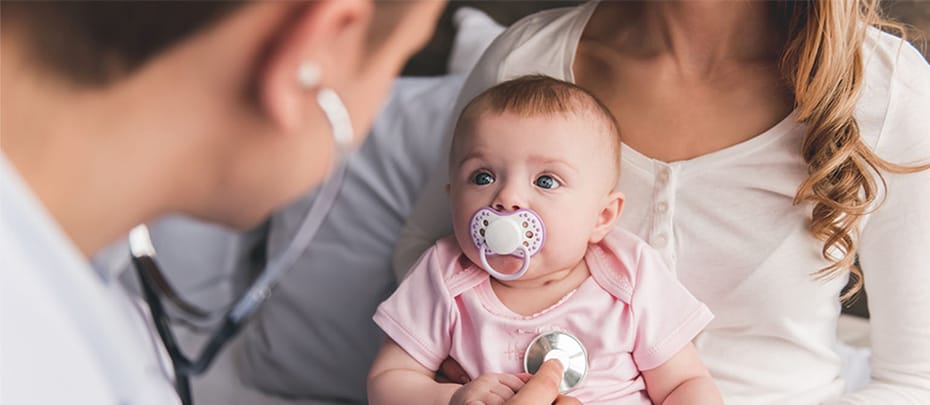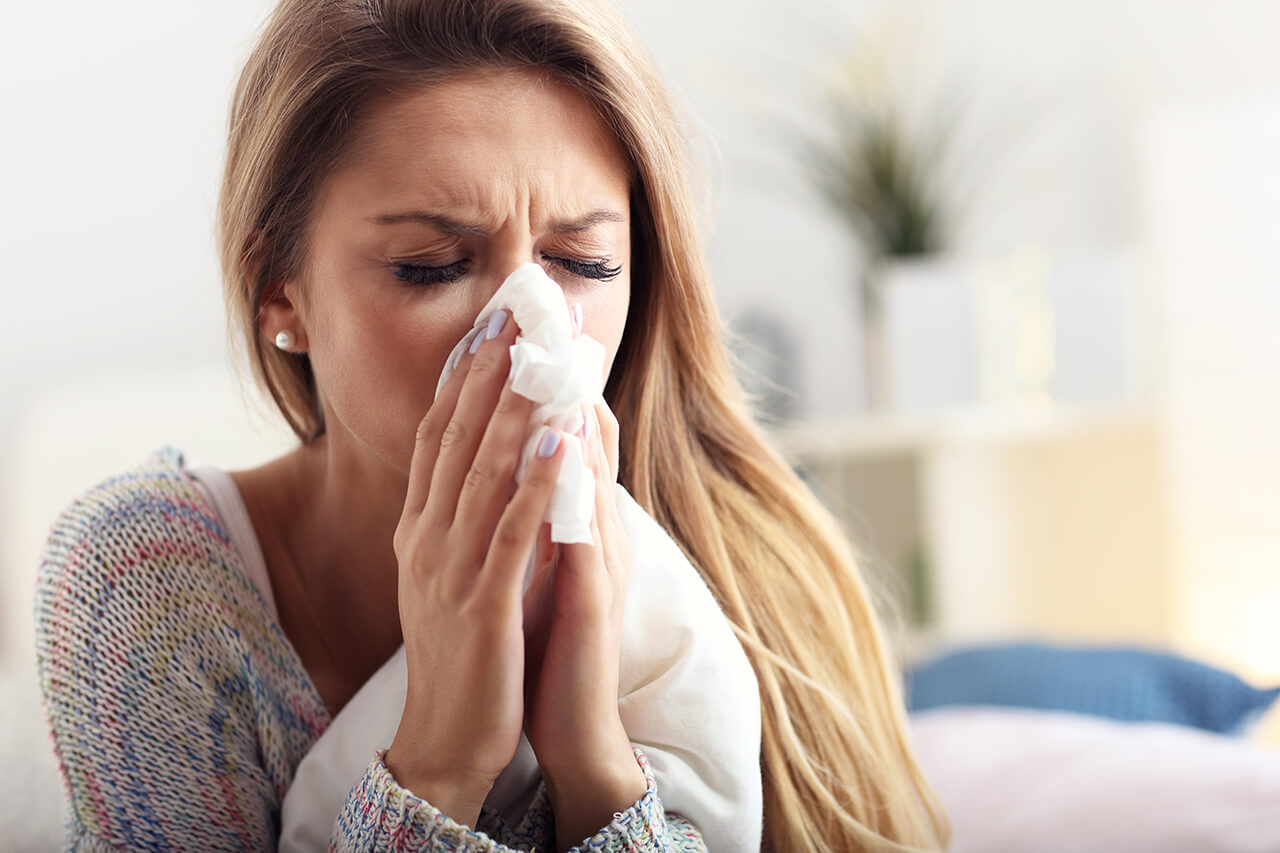Can babies have allergies?
Like older children and adults, babies can have allergies to the foods they eat, the things they touch, and the unseen particles they inhale in the home or outdoors. And when your baby has symptoms of any kind, it can be difficult to figure out what’s wrong because a little one can’t describe those symptoms.
There are many specific allergies a baby can have, though they can generally be divided into one of three categories:
- food and medicine
- environmental
- seasonal
Allergic reactions to food or medications usually happen soon after an item has been consumed. They can be either very mild or life-threatening.
Environmental allergies can be things that touch your baby’s skin, such as detergent in clothes, or things that are inhaled, such as dust. Environmental allergies can affect your baby year-round.
Seasonal allergies, however, are usually a problem during certain parts of the year or in specific locations. They tend to originate outdoors from trees and other plants that grow in the area. The term “hay fever” is sometimes used to describe these allergies.
Signs of allergies
An allergic reaction occurs when your body’s immune system reacts abnormally to things that are normally harmless. Signs of an allergic reaction can vary greatly depending on the individual and the type of allergy.
Babies are much less likely than older children and adults to have many types of allergies, because you must be exposed to some things for a time before becoming allergic to them. Seasonal allergies, for example, are uncommon in babies as they haven’t lived through a season or two of high pollen counts. Most types of inhaled allergies are uncommon before 1–2 years old.
Food and medicine allergies
Symptoms of a food or medicine allergy may appear within a few minutes, or an hour or two later. Some drug allergy signs, such as rashes, may not appear for several days.
The most common signs of food and medicine allergies include:
- hives or rashes
- itching
- wheezing or shortness of breath
Food allergies can also result in nausea, vomiting, or abdominal pain. In some cases, your baby’s lips or tongue may start to swell.
A potentially fatal reaction to a serious food or medicine allergy is a condition called anaphylaxis. It occurs when exposure to an allergen triggers overproduction of certain body chemicals. Those chemicals can send you into shock. Blood pressure will also drop dramatically and the airways narrow, making breathing difficult.
For children, severe food allergies are the most common reasons for anaphylaxis, but in rare cases, medications such as antibiotics and aspirin can be responsible. Bee stings and other insect stings or bites can also cause anaphylaxis.
Anaphylaxis is rare in babies and is almost always due to cow’s milk protein allergy.
Environmental allergies
Though uncommon in babies, allergies to dust, pets, mold, pollen, insect stings, and other things in the environment may trigger allergy symptoms that affect the head and chest, such as:
- sneezing
- red and itchy eyes
- coughing, wheezing, and chest tightness
- runny nose
Your baby may also develop hives, a rash, or itchy bumps if their skin is exposed to an allergen or something to which they are sensitive.
Shampoos, soaps, detergents, and similar products are common triggers for a reaction called contact dermatitis.
Seasonal allergies
The main symptoms of seasonal allergies, which are usually caused by plant-based allergens, are similar to environmental allergy symptoms, and may include:
- sneezing
- itchy or watery eyes
- coughing
- runny nose
If your baby has these symptoms only at certain times of the year, they may have seasonal allergies.
How to tell if it’s a cold or allergies
A runny nose and coughing are symptoms that can signal both an allergy and a common cold. So as a parent or caregiver, how can you tell the difference when your baby exhibits those symptoms?
One way is to look at the timing and frequency of your baby’s symptoms. Colds are very common in babies, while seasonal and environmental allergies caused by allergens that are breathed in aren’t. Colds last a week or two, and then your baby will be well for a while until the next one hits. Allergy symptoms tend to last longer.
Another key is the presence or absence of certain other symptoms.
For example, allergies don’t cause fevers, but a fever occasionally accompanies a cold. Likewise, allergies don’t cause body aches and pains, though a cold can often leave a child achy all over.
What causes allergies in babies?
It’s not clear why some babies have a particular allergy and others don’t. Family history may play a role. So if you have a specific allergy, your baby may also have that allergy or be more likely to develop another allergy.
Food and medicine
In the United States, the eight most common food allergens are:
- milk
- egg
- peanut
- tree nuts
- soy
- wheat
- fish
- shellfish
While some of these items may not be a concern for most babies, pay close attention when introducing foods such as milk (and milk products, like cheese), egg, and wheat to your baby.
Environmental
Common triggers of environmental allergies include:
- pet dander, such as from a house cat or dog
- mold
- dust mites, which can be found in mattresses or bed linen
- household cleaners
- detergent
- soaps and shampoos
Seasonal
Seasonal allergies may occur at various times throughout the year, but they may be most notable in the spring, when pollen counts can be high.
When to seek help for allergies
If very mild symptoms come and go quickly, take note of what happened and what may have caused it. Did your baby visit a new park or a home with a pet? Did they recently try a new food? Did you switch detergents or start using a new cleaning product in the home?
Temporary, mild symptoms don’t require a doctor’s visit, but they are worth remembering for your baby’s next appointment or if you notice those signs again.
If symptoms don’t subside within a day or they worsen, however, call your pediatrician’s office and explain what you’ve observed. The same advice holds for a reaction to a new medication. An immediate reaction, even a mild one, should prompt a call to the pediatrician.
If signs of anaphylaxis emerge, call your local emergency services and treat it as a medical emergency. Don’t hesitate, as anaphylaxis can be life-threatening.
How are allergies diagnosed in babies?
The only way to be sure your baby has an allergy, and not frequent upper respiratory infections or other condition, may be for a doctor to perform an allergy test or a combination of tests. These tests are often less accurate in babies, though.
Some of these tests can be performed by your pediatrician. However, your baby’s doctor may refer you to an allergist. An allergist is a doctor who specializes in the diagnosis and treatment of allergies. Some allergists specialize in working with babies and children, and will know what tests are safe and appropriate based on your child’s age.
Skin test
During a skin test, a tiny speck of a specific allergen is placed with a needle just under the skin. This is known as a percutaneous or skin prick test. A needle may also be used to place a diluted version of the allergen into the skin, which is called an intradermal test.
The skin at the site of the injection is observed for 15 minutes or so. If there is no reaction, that allergen is eliminated as a possibility and another allergen may be tried.
This test is generally safe for anyone over 6 months of age, though age and certain other conditions can affect the accuracy.
Blood test
Though not as sensitive as a skin test, a blood test may be helpful for younger babies or if a skin test isn’t appropriate. Certain medications, such as anything containing an antihistamine, can disrupt the accuracy of a skin test.
Elimination diet test
For suspected food allergies, you may be instructed to remove one possible allergen out of your baby’s diet for a week to see if it makes a difference. This can be difficult, because certain allergens, such as milk, can be found in many products.
How to treat allergies in babies
The main treatment for a baby allergy is to eliminate exposure to the allergen. For example, if cat fur is the culprit, then you’ll have to keep your baby away from the neighbor’s kitty. If milk is the problem, you’ll need to adjust your diet if you’re breastfeeding or your baby’s diet accordingly.
If you’re nursing, some allergens in your diet may be reaching your baby through breast milk. However, the benefits to your baby’s immune system that come from nursing (at least through the first six months) usually outweigh any indirect exposure to possible allergens.
Medications containing antihistamines are among the most common drugs used to treat allergies. Antihistamines help minimize allergic reactions. However, most antihistamines aren’t recommended for children under the age of 2.
Check with your doctor before using any medication for a baby’s allergic reaction, and be sure to read the warning labels on any medication.
Hydrocortisone cream (Cortizone) may be helpful in treating reactions on your baby’s skin. But again, check with your pediatrician before using a new medication on your baby, even ones that are available over the counter.
If anaphylaxis is a risk due to a severe food or insect allergy, then your doctor should prescribe you emergency epinephrine (EpiPen), which can be administered immediately with an injection into the skin. The medication can control symptoms until your baby receives emergency medical care.
What are possible complications from allergies in babies?
The most serious complication to an allergy is anaphylaxis.
Some allergies to airborne allergens can trigger asthma, which can also make breathing difficult. This is uncommon in the first year or two of life. Allowing any symptoms to go untreated for a long time may potentially lead to respiratory problems.
Rashes or hives that go untreated may also cause scarring if they’re severe.
How to prevent allergic reactions
Allergies are sometimes lifelong conditions that have to be managed rather than cured, though many allergy symptoms in babies improve or go away as they get older.
You can’t tell what, if any, allergies your baby will have until they are exposed to an allergen. And while you can’t prevent most allergies, you can take steps to reduce the risk of allergic reactions in the future.
Food and medicine
The key with food allergies is to introduce new foods slowly and independently. For example, the week you first give your baby an egg, don’t try any other new foods until you see how they react. If there are no signs of a food allergy or intolerance, then introduce another new food.
Environmental
If your baby is at high risk of developing allergies or asthma, reducing your baby’s exposure early in life to dust mites may help prevent future allergic problems and asthma. But there is now some evidence that early exposure to animals may help lessen the risk of developing allergies to pet dander.
To help reduce dust mite exposure, use “allergen-impermeable” bedding and be sure to wash bedding in hot water.
Also, regularly vacuuming and cleaning surfaces to avoid dust accumulation may help everyone in the house who might be sensitive.
Seasonal
If you’re concerned that your baby is allergic to pollen that blooms at certain times of the year or to other seasonal allergens, your best bet is to pay close attention to local weather reports and air quality alerts. On days when a particular pollen count is high, see if staying inside with the windows closed seems to help.
The more you learn about seasonal allergens, the better you will be able to avoid exposure for your baby.
Outlook
Baby allergies can be managed, but you may need to make some adjustments to your daily routine. Food allergies can mean changing the diet for everyone in the home. You’ll also need to be especially alert for symptoms, because a baby or anyone with one allergy is more likely to have additional allergies.
Work with your pediatrician, an allergist, and anyone who looks after your baby, such as a day care center or babysitter, to help manage your baby’s allergies.





